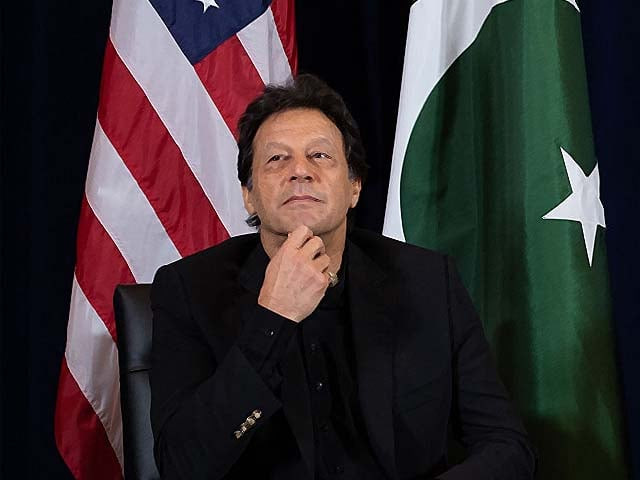Many Pakistani analysts are wondering how their country’s relations with the United States (US) might change with the incoming Biden Administration. Although their ties aren’t officially influenced by the ones that the US has with other countries, the reality is actually quite different as practically everyone already knows. Widespread acknowledgement of this open secret should inspire candid assessments of what the future might have in store for US-Pakistani relations. It’ll be argued in this analysis that the three interconnected factors of the US’ impending domestic “War on Terror”, the possibility of a detente of sorts with China, and the lack of trust between the Biden and Modi Administrations will greatly shape US-Pakistani ties across the next four years.
1. The US’ Impending Domestic “War on Terror”
The black swan event of Capitol Hill’s storming last Wednesday has prompted intense talk among both incumbent and incoming American decision makers about the need to redirect the US’ anti-terrorist focus away from abroad and towards the homeland instead. It’s not the author’s intent to discuss the merits of this possible decision or whether those who participated in Wednesday’s incident are truly “domestic terrorists” like they’re being popularly portrayed at the moment, but simply to point out that any move in this direction could signal a watershed event if it results in the Pentagon paying less attention to conventional military issues across the world.
Over the past four years, the US’ military forces have been hyper-focused on “containing” China, and while this will likely persist to a large extent, the intensity of these efforts might lessen due to the more pressing security concerns (as decision makers might see it) that have been placed upon them at home. The expected further militarisation of American society in the name of “defending against domestic terrorism” will require considerable resources, time, and energy to execute, thereby potentially distracting somewhat from the Pentagon’s prior mission of “containing” China. This scenario could in turn facilitate a detente between the US and China like President-Elect Biden’s foes speculated that he was planning to explore if elected.
2. A US-Chinese Détente
The overall momentum of the US’ permanent military, intelligence, and diplomatic bureaucracies (“deep state”) is geared towards “containing” China nowadays, but that’s mostly because of the decision undertaken by its outgoing Commander-in-Chief. Bearing in mind the outsized influence that the President has on altering the course of his country’s grand strategy, it’s conceivable that Biden might seek to “moderate” his predecessor’s efforts in this respect, both due to the simple principle of pragmatism and also to focus more on domestic issues such as rebuilding America’s ravaged economy and waging its domestic “War on Terror”. No one should expect the US to abandon its grand strategic designs, but just to potentially alter them in a meaningful way.
It’s too early to accurately predict how this could play out in practice, but a series of formal or informal “compromises” between the US and China on the wide array of issues negatively impacting their relations – the South China Sea, Hong Kong/Taiwan/Tibet/Xinjiang, the Quad, the tech/trade war, etc. – could be clinched to give each superpower the breathing space to concentrate on domestic issues. Biden’s team would have to ensure that Trump’s “deep state” holdovers don’t sabotage this scenario like Obama’s successfully did with Trump’s envisioned detente with Russia, but if they can manage to thwart that challenge, then the US’ anti-Chinese “containment” efforts might take on more of a political nature than its current military-centric one.
3. The Lack Of Biden-Modi Trust
Supplementary to the other two factors shaping the future of US-Pakistani relations is the lack of trust between the Biden and Modi Administrations after the latter went all in when it came to its failed bid to support Trump’s re-election through events such as “Howdy Modi” and “Namaste Trump”. In and of itself, this wouldn’t be too influential of an issue to focus on since interests predominate in International Relations more so than personal ties do, but it becomes significant against the possible backdrop of the US refocusing a considerable amount of military attention on the homeland and potentially reaching a detente (however short-lived) with China. Those two interconnected scenarios could lead to the third whereby US-Indian relations are weakened.
The US will always retain a grand strategic interest in comprehensively cultivating relations with India, especially as an intended bulwark against China (despite the immense difficulty in doing so), but the emerging Quad alliance’s military focus might shift more to the political and economic domains in response to the two previously discussed factors. Should US-Indian relations become comparatively (key qualifier) less important than under Trump, especially in the context of a possible detente with China, then Biden might feel more comfortable pressing India on human rights issues in Kashmir and elsewhere as well as repairing relations with Pakistan. This could in turn relieve Pakistan of Hybrid War pressure emanating from Afghanistan and India.
Biden’s upcoming inauguration presents some opportunities for Pakistan, though the chances of capitalising upon them are largely beyond Islamabad’s control since bilateral ties are disproportionately influenced by Washington’s ones with Beijing and New Delhi. Nevertheless, the black swan event of Capitol Hill’s storming on Wednesday triggered the possibility of the US redirecting a considerable amount of its military focus back to the homeland, which could facilitate Biden’s speculative intent to reach a detente with China. In turn, bearing in mind the lack of trust between the Biden and Modi Administrations, US-Indian relations might no longer play as influential of a role over US-Pakistani ones, thus working out to Islamabad’s benefit if it plays its cards right.



COMMENTS
Comments are moderated and generally will be posted if they are on-topic and not abusive.
For more information, please see our Comments FAQ